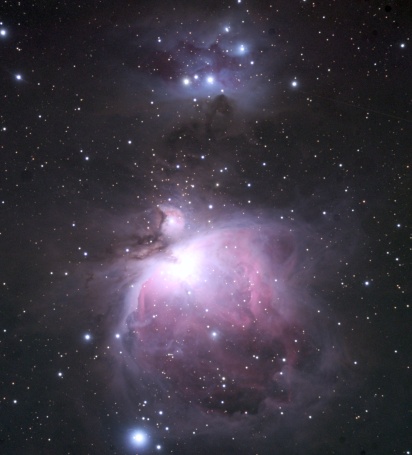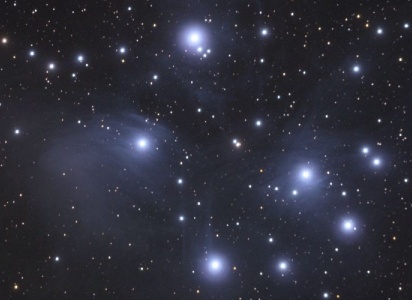 ast week a big story came out reminding us that light pollution is increasing.
I was surprised to see that people are interpreting it as a political issue.
They're making a good point: if you read what the light pollution websites say,
they're starting to sound like environmentalists. In so doing, they're hurting
their cause.
ast week a big story came out reminding us that light pollution is increasing.
I was surprised to see that people are interpreting it as a political issue.
They're making a good point: if you read what the light pollution websites say,
they're starting to sound like environmentalists. In so doing, they're hurting
their cause.
Here's what Globe at Night, which calls itself a “citizen-science campaign to raise public awareness of light pollution,” says:
In disrupting ecosystems, light pollution poses a serious threat in particular to nocturnal wildlife, having negative impacts on plant and animal physiology. It can confuse the migratory patterns of animals, alter competitive interactions of animals, change predator-prey relations, and cause physiological harm. . . If humans are exposed to light while sleeping, melatonin production can be suppressed. This can lead to sleep disorders and other health problems such as increased headaches, worker fatigue, medically defined stress, some forms of obesity due to lack of sleep and increased anxiety. And ties are being found to a couple of types of cancer.

Orion nebula. The white part at the top is the Running Man nebula. This is nearly impossible to see in a city, thanks to light pollution.
Puh-lease. To say light pollution causes obesity and cancer misrepresents and exaggerates our scientific understanding. This stuff seems to have been added because they felt that their real goal—to make it possible for people to see the stars at night—isn't compelling enough, so they had to try to reduce it to protecting the environment and human health.
The best way to hurt the cause of astronomers is for advocates to turn it into a political issue. Exaggerating and adding unsubstantiated claims undermines their credibility: more than anything else, people hate being lied to.
If people can't make their case without exaggerating, they should admit to themselves that there might not be a good case to make. But in this instance there is one.
Seeing the stars is important
I spent most of my adult life in an area marked as “red” or “white” on those light pollution maps, which means at night you can see Jupiter, Venus, the Moon, and maybe Sirius and Vega. That's it. It never really gets dark in suburban Maryland. Some people go their entire lives without ever seeing Andromeda, the Orion nebula, or even the galaxy we live in.
When I moved to the country, I was astounded by the fact that, on those three or four nights each year when it's not raining, there are so many stars that it's hard to pick out the constellations. In some parts of the western U.S., the Milky Way is so bright that people sometimes call the police, thinking that some terrible explosion must have occurred. And, in a manner of speaking, they're right, but it was a long time ago, and the cops can't do much about it now.

Pleiades star cluster. The fuzzy areas are interstellar dust clouds. This cluster is one of the most prominent features of the sky, yet in many areas it's now impossible to see.
One of the most exciting moments in my life was the first time I saw the galaxy of Andromeda through binoculars. The difference between seeing a photograph and seeing it for oneself is like the difference of seeing a picture of New York City on a post card and going there. The photograph may be beautiful, but it might as well not be real.
Not only is it impossible for city dwellers to see Andromeda, it's hard to look in the right direction, because you can't find the constellation (Andromeda) that it's located in. Even seeing nearby Cassiopeia can be difficult in some areas.
That's why all those science documentaries that show fake CGI images of space are so harmful. The pictures may be very beautiful, but they're all fake. Pretty soon real pictures look dull and mundane by comparison. People expect zooming, swirling, colorful and detailed photographs, and they come to believe that the Hubble images themselves are fake. Those pictures you find on the Internet with the color saturation blown to hell and back have the same effect.
Going through life believing that everything is fake—created by somebody who wants to deceive you—is bound to have an adverse effect on one's mental health.
I keep an LED floodlight on 24 hours a day, partly to deter prowlers, but mainly to keep bears away from my trash. I'm sad about it. Not because of the environment, but because it costs me eight bucks a month to keep it on. The activists need to do a better job of making this economic argument.
When they claim that lighting causes obesity, headaches, sleep disorders, and cancer, and that it harms plant and animal physiology, it's because they don't really believe in their own cause. The truth is that it's getting harder and harder to see the stars. And that harms those of us who, whether we're libertarians, conservatives, or even progressives, just want to find something in this world that is not only real, but gloriously immune from politics.
nov 24, 2017, 7:05 am; last edited dec 15 2017, 6:43 am
